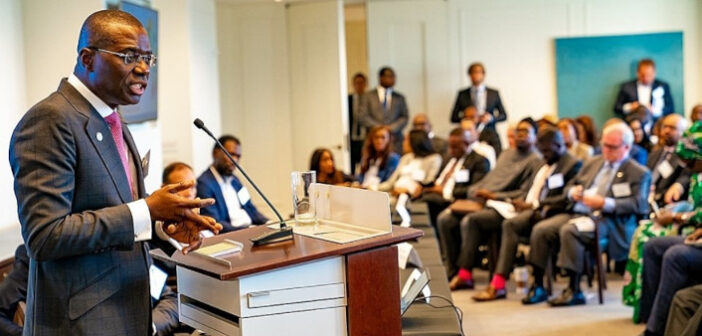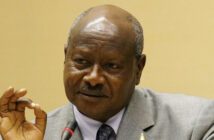The Governor of Lagos, Babajide Sanwo-Olu, has reassured investors that his state is a good place to make investments and that it is “the crown subnational jewel of the African economy.”
Sanwo-Olu gave a speech at the United States-Nigeria council for food security, commerce, and investment (UNSC) event, which was held in Washington, DC, in conjunction with the most recent World Bank and International Monetary Fund (IMF) spring meetings.
He asserted that the state was the ideal location for investments in a variety of sectors, including data centres, business process outsourcing (BPO), talent training and placement, and financial technology.
In a statement on Monday, Gboyega Akosile, the chief press secretary for Lagos, cited Sanwo-Olu’s comments, “It is always my very great pleasure to engage with existing and potential investors and business people in Nigeria, and most especially, Lagos state, the crown subnational jewel of the African economy,”
“I am sure many of you will be familiar with the numbers, the fact that Lagos is the fifth largest economy on the continent, the most populous city, and the fastest-growing urban centre, with a very vibrant and entrepreneurial population, made up of mostly young people.”
“We have the market, we have the talent, we have the enabling environment, we have the physical infrastructure, all in place. And we have the success stories, great testimonials of what is possible when people come together to develop and implement great ideas and solutions, backed by the power of private capital and the support of understanding and enthusiastic governments.”
In his list of achievements for the state, Sanwo-Olu mentioned that the first phase of the Lagos light blue rail line, which he called “the first modern intra-city rail system in Lagos,” had been completed.
He said that a test run of the project is currently taking place, giving Lagosians “a long-overdue sense of what it is to belong to a city with the 21st-century rail system.”
The governor claimed that the first stage of the red line’s construction is also almost finished.
“It will interest you to know that the deep-sea port is the first deep-sea port to be built in Nigeria, and is now the most modern one in West Africa. A real game-changer for shipping and logistics in Nigeria and all of the west coast of Africa,” he said.
“Lagos state owns a 20 percent stake in that port, while private investors own 75 percent. The port will create an estimated 170,000 direct and indirect jobs and generate government revenue of over $200 billion over its 45-year concession period.”
“It is, in our view, among the biggest and most transformational infrastructure investments in Lagos state in several decades, and we worked very hard with the private sector and the federal government to deliver it.”
“Expect more of these kinds of collaboration in the next four years, especially as we look to deliver on a new bridge across the Lagos Lagoon, the 4th Mainland Bridge, and a new International Airport in Lagos.”
In a statement about digital technology and innovation, Sanwo-Olu said that the Nigerian ICT sector, which is a part of the digital economy, was the only one of the country’s economic sectors to have double-digit growth during the COVID-19 epidemic.
He claimed that Lagos, where businesses like Flutterwave, Paystack, and Interswitch were founded, is Africa’s fintech capital.
“As a state government, we are partnering with the federal government, and the private sector, to redevelop the national theatre, a Lagos landmark, into a world-class creative and technology park, with hubs for information technology, music, film, and fashion. That multi-million-dollar redevelopment is very well advanced now and should be completed this year,” the politician said.
“I must also not fail to mention the fact that Nigeria now has a startup act, the Nigeria Startup Act, which was signed into law by President Buhari some months ago, and which further solidifies our status as the country of choice for technology investment in Africa.”
In addition to focusing on the smart city project, the state, according to Sanwo-Olu, also prioritises digital transformation.
“The smart city project also includes hundreds of video surveillance cameras, to improve security in the metropolis, as well as help us better coordinate our emergency response systems,” he said.




